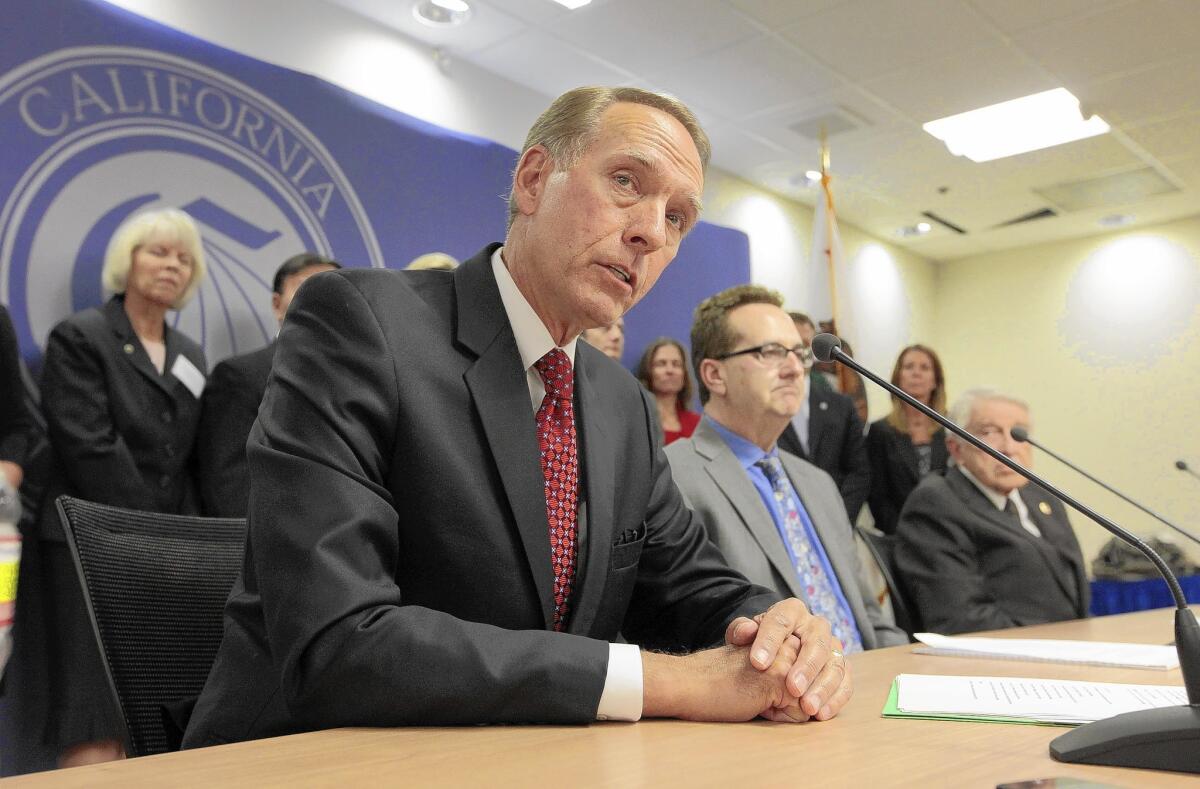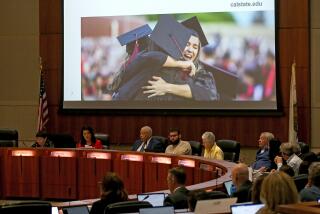Audit criticizes panel for move to revoke S.F. college’s accreditation

In a blistering critique, state auditors Thursday faulted the decision by a private panel to revoke the accreditation of San Francisco’s only community college and found that the overall authorization process is weak.
The audit said the Accrediting Commission for Community and Junior Colleges is arbitrary in enforcing rules among the state’s 112 two-year schools, conducts too much of its business behind closed doors and called the commission’s appeals process inadequate.
Further, the report raised concerns that the commission, one of seven regional accreditors recognized by the U.S. Department of Education, sanctions California colleges at a much higher rate compared to penalties imposed by other agencies.
“This report concludes that inconsistent application of the accreditation process and a lack of transparency in that process are weakening the accreditation of California’s community colleges,” state Auditor Elaine M. Howle wrote.
The report will add fuel to criticism from many faculty members, students and lawmakers that the Novato-based commission erred when it moved last year to pull accreditation from City College of San Francisco as of July 31. The troubled 80,000-student institution was cited for long-running financial and governance problems.
A judge halted the revocation pending the outcome of a lawsuit filed against the panel by San Francisco’s city attorney. A hearing is scheduled for October
The agency has proposed rules that seemed to be designed to find a way out of the morass by allowing the college to apply to restore its accreditation status and, after an evaluation, allow it an additional two years to comply with all standards.
The 19-member panel is scheduled to vote on adopting the new policy over the next week. Separately, an appeals panel directed the commission to review its original revocation decision and consider recent progress made by the college. No date for that review has been set.
Federal regulations grant colleges up to two years to comply with accrediting standards, but the commission in 2012 allowed City College of San Francisco only one year to comply, according to the audit.
The report found that between January 2009 and January 2014, 15 colleges were allowed two years to fix problems while six other colleges were allowed up to five years to resolve issues.
And from 2009 to 2013, the accrediting panel sanctioned nearly 55% of the California schools it reviewed, compared to a penalty rate of about 12% for the other six regional accreditors. The report cited several factors for the discrepancies, including the agency appropriately identifying trouble areas but also not providing colleges with sufficient feedback to address concerns before being reviewed.
Auditors surveyed executives at each of the state’s 112 junior colleges and 62% overall said they were comfortable with the panel’s decision-making, while 38% said the process lacked transparency.
The commission said the report found no violations of state law and scolded auditors for lacking knowledge and experience regarding the accreditation process.
“This report is not a real audit,” panel spokesman David Hyams said. “It draws conclusions about accreditation without the context and facts necessary for evaluation and without the expertise about federal laws and regulations that apply to accrediting agencies.”
The report recommended that California community colleges Chancellor Brice Harris work with campuses to establish better communications with the commission and advocate for reform of its appeal process. It also suggested that the chancellor consider allowing colleges to choose a different accreditor.
In the aftermath of the San Francisco situation, the state Legislature is considering several bills related to accreditation, including one that would explore the feasibility of establishing an independent accreditor.
A spokesman for Harris said that allowing multiple accreditors would create a distraction, but that he agreed with most of the other recommendations.
Others said they hoped the audit would spur change.
“Pretty much every time we get new and substantive and thoughtful information about the accrediting commission, it helps to flesh out a picture that this body is arbitrary, unaccountable and is doing damage where it should be doing good,” said Alisa Messer, a City College of San Francisco English instructor who is past president of the faculty union.
carla.rivera@latimes.com
Twitter: @carlariveralat
More to Read
Start your day right
Sign up for Essential California for news, features and recommendations from the L.A. Times and beyond in your inbox six days a week.
You may occasionally receive promotional content from the Los Angeles Times.







